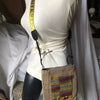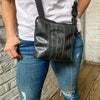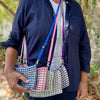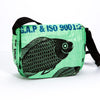Clothing as Creative Expression: A Stand Against Objectification

Clothing, an everyday necessity, has transgressed beyond its rudimentary function of providing protection and comfort. It has evolved into a powerful form of self-expression that reflects our individuality and identity. But its inspirational and expressive power is sometimes encroached by misconceptions about consent and objectification, creating a significant tug-of-war between personal preference and societal judgment. This article peels back the layers on clothing as a creative style expression and addresses the critical issue of unwarranted attention and coercion in society.
Decoding Creative Style
So, what does creative style mean? Essentially, creative style is the way an individual expresses themselves through their choices and taste in personal aesthetics, such as clothing, accessories, and all forms of personal appearance. Take the creative style setting on Sony cameras, for instance. This feature allows users to set the color, saturation, contrast, and other visual elements in an image according to their personal preference. In the context of fashion, creative style equates to your unique choice in clothing and how this choice conveys your personality and mood.
The Power of Style Expression
Clothing, often termed the "second skin," has immense expressive and communicative potential. Each outfit we wear is an opportunity to make an artistic statement and instigate a dialogue about our identity, culture, hobbies, or beliefs. Whether it's the flamboyant attires at a music concert or the daring ensembles on the runways of Paris Fashion Week, there are numerous examples in our day-to-day lives that showcase style expression as an art.
Notably, fashion has been harnessed as an empowering tool by feminist and LGBTQ+ movements to express solidarity, dissent, and individuality. From Ruth Bader Ginsburg's dissent collar to the rise of gender-fluid fashion, clothing has played a pivotal role in these socio-political discourses.
The Issue of Consent
However, just like any work of art, clothing is subject to interpretation and misuse. While interpretation should ideally inspire insights, creativity, and appreciation, certain misinterpretations can lead to victim blaming, objectification, and invasion of personal space—particularly in regards to women's fashion choices.
'Dress for respect,' a common phrase we're told, insinuates that clothing can act as an unspoken agreement—or consent—to how one should be treated. This flawed line of reasoning frequently leads to molestation, harassment, or catcalling, causing undue stress and discomfort to individuals expressing their creativity and individuality. Despite being a significant part of the ongoing discourse about consent, these incidents continue to hinder the rightful expression of artistic freedom and personal style.
Unleashing the Authentic Creative Expression
Fashion is about celebrating our bodies, embracing our creative spirit, and expressing our unique identity. As Allison Mills, a speech communication major at Oregon State University, says, "Fashion is an art that should be appreciated and celebrated as such." She asserts that her style choices allow her to showcase her personality and mood, something every individual should have the opportunity to experience.
In a similar vein, Temuera Queypo, a merchandising management major at Oregon State University, remarks, "dressing up is a way to creatively express myself; it allows me to choose pieces that I like and create a look that makes me feel comfortable and true to myself."
The primary focus while choosing an outfit or creating a look should be one's comfort and confidence, not the fear of attracting unwanted attention or judgment.
Conclusion
Everyone has the right to express themselves freely through their choice of clothing and style. The objectification and inappropriate advances encountered when you express your unique style in public spaces should not deter your creative confidence and sense of self-expression.
Raising awareness of personal boundaries and breaking down societal norms and stereotypes associated with fashion are essential steps towards creating a society that respects and nurtures personal style and creativity.
Don't let societal prejudice dim your creative spirit or dilute your style. Remember, your style expression is akin to your unique signature—unapologetic and empowering. Keep expressing, keep inspiring, and most importantly, let's keep our hands to ourselves!





